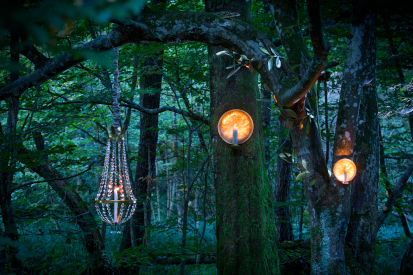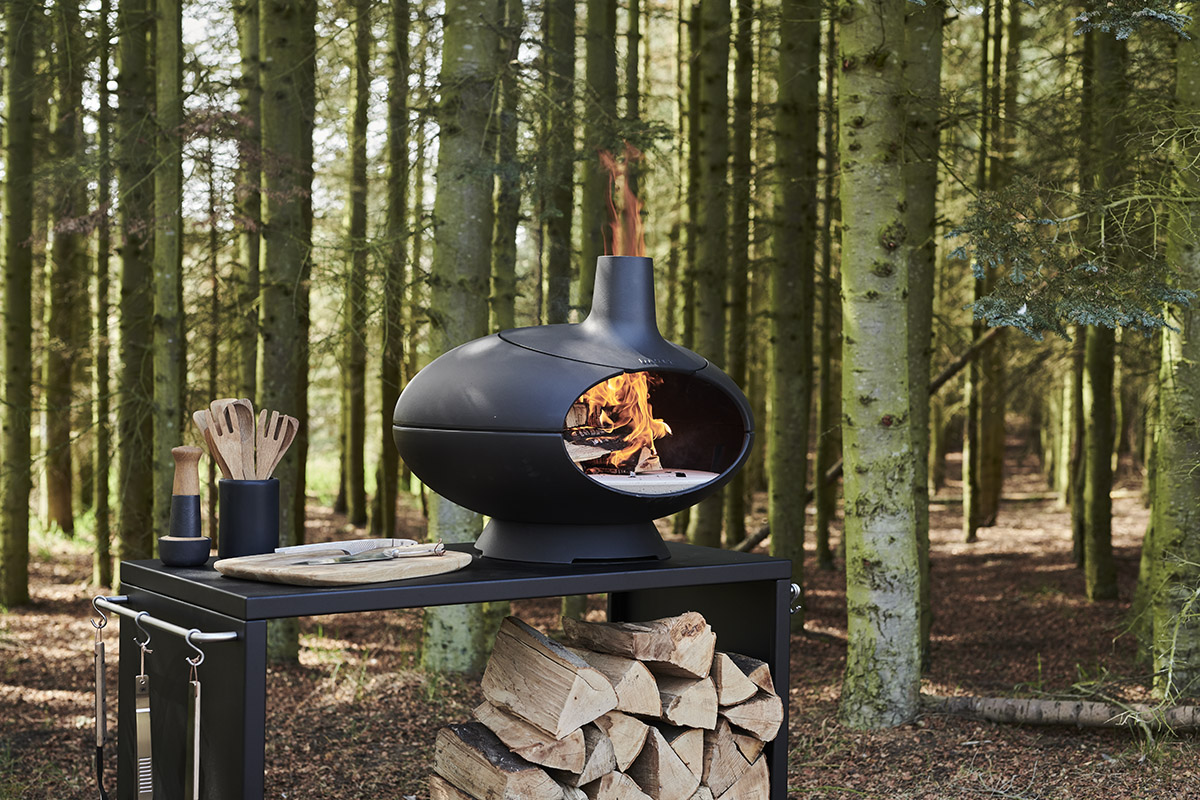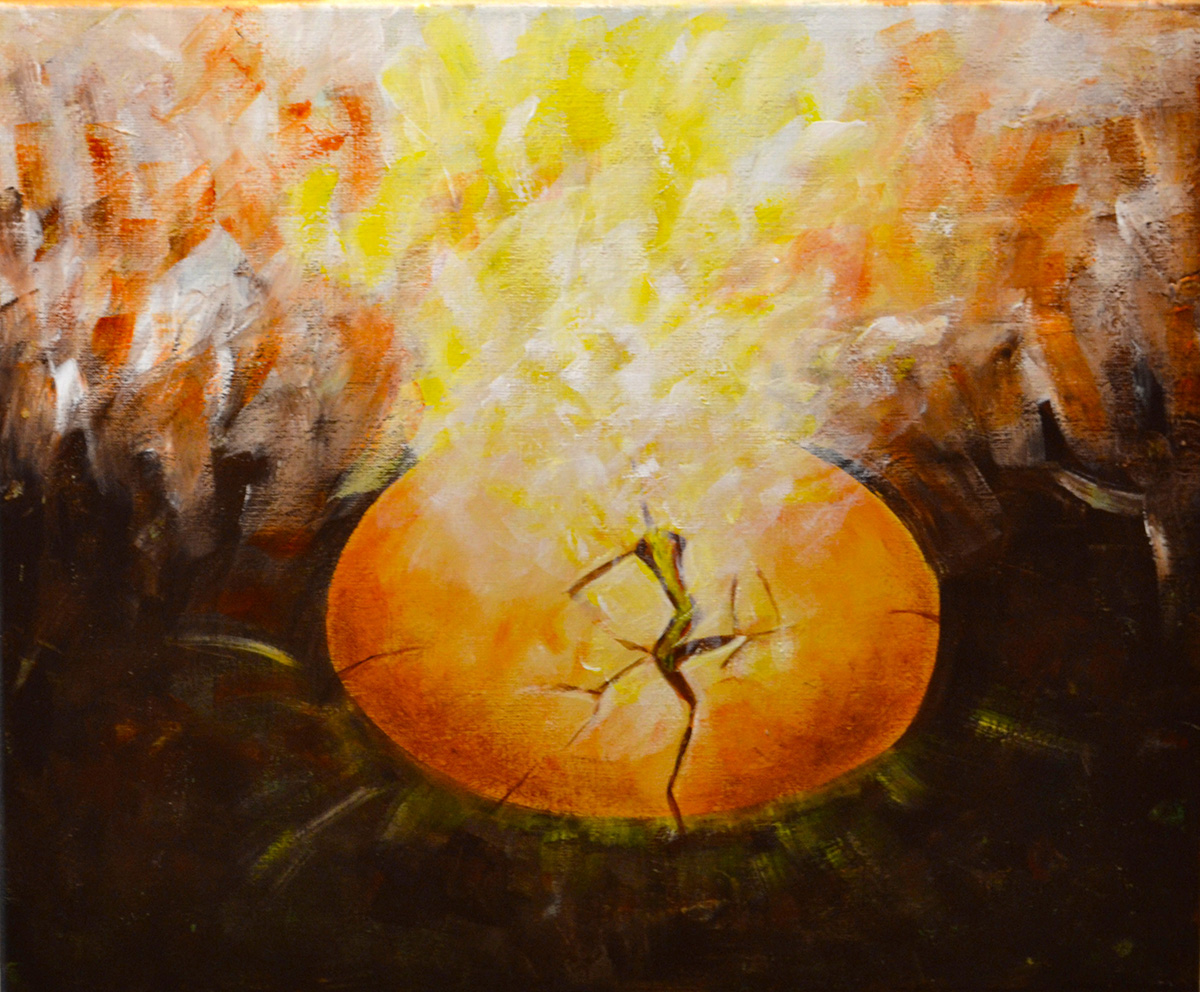Malin Appelgren

Through the rhythm of a beating hammer
TEXT: LINNEA DUNNE | PHOTOS © TORBJÖRN LAGERWALL
Wall scones, candlesticks, chandeliers and garlands… Malin Appelgren designs and crafts all of the above and more in her workshop in Österlen in southern Sweden, using nothing but her hands, her craft, brass and pewter – and, crucially, plenty of time.
In front of Malin Appelgren in her workshop is a photo of her maternal grandfather, Karl-Erik Torssell. He taught her everything she knows. “I used to hear the beating hammer, a certain rhythm all the time, like a heartbeat,” recalls Appelgren, who spent her childhood summers with her grandparents. “That rhythm stuck. There was a certain calm over it, and when I finally asked granddad to teach me, I already had the rhythm in my bones.”
Her grandfather, however, was initially sceptical; he thought the work was too heavy and not for girls. “I guess it is physical, so it’s associated with men – but there’s a special technique, a way to use the weight of the hammer rather than pure muscle strength, just so you don’t injure yourself,” Appelgren interjects. “And I do work to stay fit, to make sure that I am able to keep working like this. I teach a number of yoga classes every week.”
When, after endless nagging, her grandfather finally gave in, Appelgren was allowed to work with pewter but not brass – the latter was too hard. “I stole a piece of brass and went off and secretly made a wall scone, and it was terrible,” she says. “So I brought it back to admit my theft, apologised and gave it to granddad. And he picked it up and studied it in detail, just like he does with every single scone he makes, and he said, ‘Malin, this is the most beautiful scone I’ve ever seen’. It was his way of giving me his approval, and that heritage means a lot to me.”
The importance of time
A one-woman business, Appelgren makes around 800 products every year. To her, time is as crucial an ingredient as the materials and craft – quite the radical attitude in an era of economic growth as the be all end all. “It takes time to create this product, and I hope that those who buy it can feel the time that’s gone into it,” she explains. “People are always onto me to make more, to hire someone – but no, I don’t want to grow. I make 800 products a year, and when they’re gone they’re gone. It’s not about money; it’s perhaps more of a lifestyle thing.”
This attitude is reflected in every aspect of Appelgren’s work, from her solo workshop to the carefully selected retailers she chooses to distribute her work to. “I have retailers queueing to sell my products, which is nice as it means I can be selective,” she says, adding that it is also a case of minding her arm and avoiding too much stress. Working alone in her remote workshop has its pros and cons, she admits. “It gets lonely at times; I do miss having colleagues, but it’s just awfully noisy when I work! But recently I’ve been inviting my husband to work with me in the workshop. He works with metal and is good with welding, so it’s a new perspective as well as a new colleague.”
Simplicity and heritage
If it seems as if she is quite the stubborn artisan, it is perhaps because she considers her work a vocation. She always knew that she wanted to work with her hands, and this year marks the 25th anniversary of her doing so – the 18th of it being her full-time occupation. You could forgive her for being somewhat of a control freak. “I get requests for new products, but I almost always say no,” she says plainly. “When I have time to make something new, I want it to come from me. The simplicity of creating one scone after another can be a good and a bad thing, but I’m a creative person and want be allowed to let the lust lead the way.” As for trends, she admits to being able to tell whenever a shift from brass to pewter and vice versa is about to happen, but other than that she does not pay heed. “I want things to be simple and functional. We always try out new products at home before they get the green light,” she says.
Of course, there is a reason why the Appelgren product range has remained mostly recognisable for the entirety of the brand’s life. Back in the 1930s, Karl-Erik Torssell designed the wall scone today known as Kungalampetten, The Royal Scone. The name points to the fact that the very first two scones of this exact design were sold to King Gustaf V, resulting in the company getting a royal warrant and, subsequently, Appelgren’s grandfather also working closely with Estrid Ericson of the legendary Svenskt Tenn.
It is hardly surprising, then, that Appelgren gladly continues to craft the scone, one of her best-sellers. With it, she is keeping her grandfather’s legacy alive, not just through the design and the light that shines from it, but through the gifts of time, craft, and the heart-like rhythm of a beating hammer.
Web: malinappelgren.se
Facebook: pewterandbrass
Instagram: @malinapp
Subscribe to Our Newsletter
Receive our monthly newsletter by email





